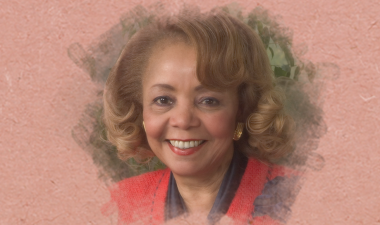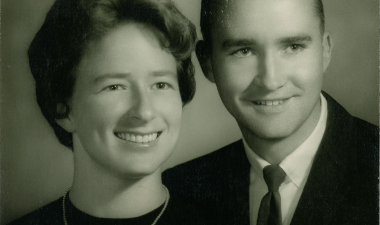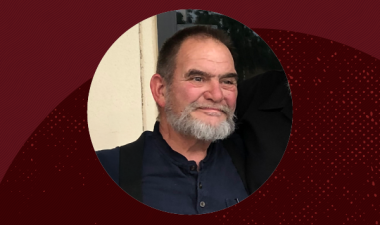Colleagues remember Professor Emeritus Clyde Collard as a dedicated educator and prolific writer who loved to interact with people. His daughter, Nancy Doizé, described him as all that and more.
“He was an amazing man and a wonderful father who cared deeply for his family and his children,” she said. “He loved life, doing things and going places. And, he absolutely loved teaching sociology.”
Collard, who taught in Stanislaus State’s Department of Sociology for 20 years, died Feb. 11. He was 91.
Born in Long Beach, Collard moved with this family to the Central Valley as a teen and graduated from Livingston High School. He earned his bachelor’s and master’s degrees from San José State University and his doctorate from Louisiana State University.
In 1977, he joined the Department of Sociology as a lecturer. Four years later, he earned the title of professor and went on to serve as department chair from 1990 to 1994.
Doizé recalls growing up and watching her father attain his higher education degrees. Before he joined Stan State, he taught at San Jose City College, at San José State University and the University of Southwestern Louisiana.
“He was proud of sharing his knowledge, and he loved to talk and entertain,” she said. “He was an old-fashioned kind of person, and he always taught in a shirt and tie. That was important to him, but he was not a dry professor. I was fortunate enough to have sat in on his classes a couple of times when I was in high school, when he was teaching at San Jose City College.”
At both San Jose City and Stan State, Collard “loved the back-and-forth interaction with students,” Doizé said. “He loved watching how people interact with each other and trying to understand why people do what they do. Students respected him and wanted to be in his class. I think students really enjoyed his classes and they paid attention.”
In a tribute on the Department of Sociology website, Stan State Professor Tamara Sniezek wrote of Collard: “I was an undergraduate student in Dr. Collard’s Classical Theory course. He inspired me to pursue a graduate education and gave me the foundational tools in sociology that were critical to my own success.”
His scholarly interests included publishing books and journal articles in sociology, from rural sociology to family sociology. During his teaching career, he co-authored several sociology textbooks.
“He loved watching how people interact with each other and trying to understand why people do what they do. Students respected him and wanted to be in his class. I think students really enjoyed his classes and they paid attention.”
-Nancy Doizé
During his time at Stan State, he met his late wife, Laura Collard, who was a lecturer in liberal studies and served as associate director of academic advising.
Doizé recalled the special moment when her father was able to present her niece, who attended Stan State, her certificate during commencement.
Then, there was the time he carried out a “wonderful moment” for Doizé by officiating her wedding ceremony, held on Valentine’s Day. He also recited a love poem during the ceremony.
Collard retired from the University in 1998, but his love of writing and learning never waned. He continued his intellectual pursuits by writing. He wrote three books, “The Snowshark,” “The Journey” and “This Place of Wrath and Tears,” which was his autobiography.
In 2014, Collard was one of 15 writers who co-authored a community novel titled, “Ashes in a Teardrop,” a suspenseful mystery set in Stanislaus County.
Doizé always appreciated the support she received from her dad growing up.
“He told me I could do anything I wanted, that I could do anything my brother did,” said Doizé, who as a young woman in the 1970s, initially wanted to be a journalist and cover the war in Vietnam. “His encouragement was great for me, but the problem was that out in the real world, they were not ready for women to be doing that. It was still a male-dominated world. So, I decided to stay with my love of dance.”
Collard is survived by four children, nine grandchildren and 12 great-grandchildren.
“He was a wonderful man and a wonderful father,” Doizé said. “He helped raise us to be good productive members of society and the community. He taught us so much growing up, about nature, music, art and caring for each other. He loved life until the very end. He will be missed.”



